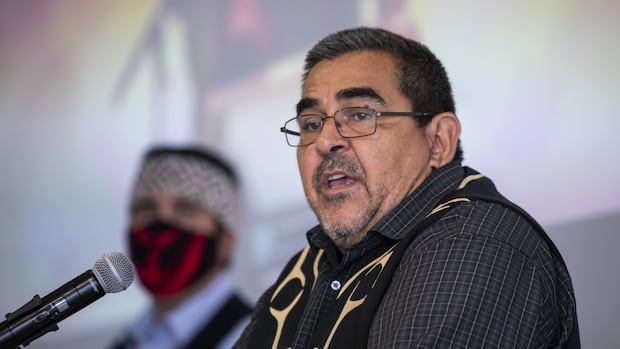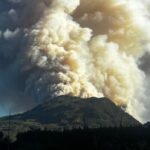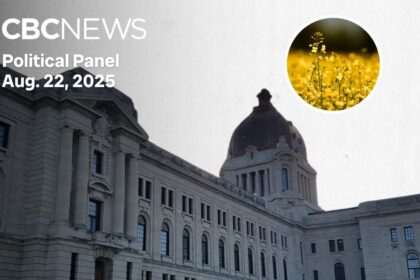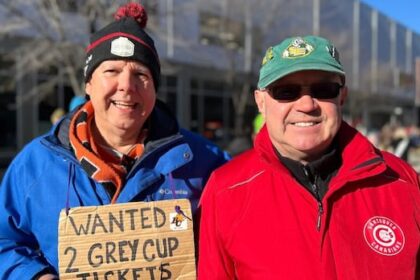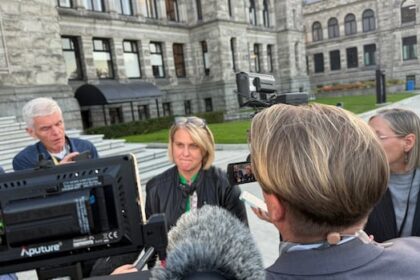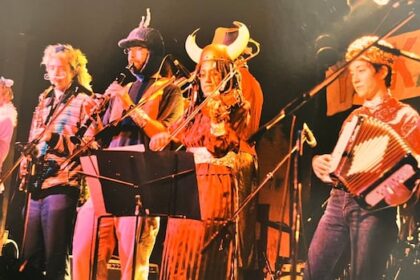British ColumbiaThe fallout from last week’s B.C. Supreme Court ruling on a rights and title case that favoured the Cowichan Nation is continuing, with other Indigenous groups saying they are “devastated” by the decision and the province filing an appeal.Mixed reaction to B.C. Supreme Court ruling in favour of the Cowichan NationSantana Dreaver · CBC News · Posted: Aug 12, 2025 7:06 PM EDT | Last Updated: 5 hours agoMusqueam Chief Wayne Sparrow says that the lands in question are in the heart of his people’s territory. (Ben Nelms/CBC)The fallout from last week’s B.C. Supreme Court ruling on a rights and title case that favoured the Cowichan Nation is continuing, with other Indigenous groups saying they are “devastated” by the decision and the province filing an appeal.The Cowichan Nation, which consists of five First Nation communities on Vancouver Island — the Cowichan Tribes, Halalt, Lyackson, Penelakut and Stz’uminus — was successful in arguing they have a right to fish in the Fraser River, and that they have Aboriginal title to a parcel of land in Richmond, B.C.But while Cowichan members are celebrating the historic win, other First Nation communities with traditional ties to the Fraser River voiced their disappointment, with legal counsel for the Musqueam and Tsawwassen First Nations reviewing the decision.Chief Wayne Sparrow of the Musqueam said the decision was “surprising and disappointing,” noting that the lands in question are “in the heart of [Musqueam] traditional territory.” “We have deep ties to that specific area,” he said on CBC’s The Early Edition on Tuesday.Sparrow said Indigenous jurisdiction was being decided through colonial court systems and “now we have to review what our options are and how we move forward.” LISTEN | Chief Wayne Sparrow on the landmark Cowichan Tribes v Canada ruling: The Early EditionCowichan Tribes negotiator responds to the landmark Aboriginal title rulingRobert Morales,the chief negotiator of the Hul’qumi’num Treaty Group and a member of the Cowichan Tribes, shares what the Cowichan Tribes v Canada ruling means for the Quw’utsun Nation and speaks to the province and Musqueam Nation’s responses.He says if you ask any First Nation in B.C.’s Lower Mainland, the Fraser River was not known as the Cowichan River prior to colonization, citing oral Musqueam history. B.C. Attorney General Niki Sharma says that the province prefers to sit down with First Nation partners in negotiation, rather then pursuing with court action. (Darryl Dyck/The Canadian Press)B.C. Attorney General Niki Sharma, also talking on the The Early Edition, said the province’s particular concern with the ruling concerns its potential unintended impact on private land ownership.She said her office is concerned that “innocent land purchasers” will face backlash from the ruling because the Cowichan Nation claimed private property in the case.Sharma said “complicated law” comes into play when trying to resolve historic land disputes. LISTEN | B.C. Attorney General planning appeal: The Early EditionB.C. Attorney General aims to appeal the landmark Cowichan Tribes v Canada rulingB.C. Attorney General and Deputy Premier Niki Sharma explains the Province’s position and plans to appeal this Supreme Court of B.C. ruling.”We don’t think the court got the right balance here,” she said. “There’s always going to be ways that we need to resolve reconciliation with First Nations, and that this land across B.C. has many nations that have rights and title claims related to it. “When we think the court didn’t get the right balance with the law, it’s our job to face that challenge in court.”Chief negotiator Robert Morales of the Cowichan Tribes, far right, and Chief Lydia Hwitsum of the Cowichan Tribes, third from right, pictured in 2009 with other chiefs from the Hul’qumi’num Treaty Group. (Charles Dharapak/The Associated Press)But Robert Morales with the Cowichan Tribes said the ruling rectifies injustice.Morales, who has been the chief negotiator of the Cowichan Tribes and Hul’qumi’num Treaty Group for 20 years, says 80-90 per cent of the Cowhican Nation’s traditional territory was privatized and given away. LISTEN | Cowichan Tribes negotiator responds to the landmark Aboriginal title ruling: The Early EditionChief Wayne Sparrow on the landmark Cowichan Tribes v Canada rulingChief Sparrow of the Musqueam Indian Band joins to discuss the ruling and what they’re doing in response.”I have been asking the government since the year 2000 to deal with the issue of . . . what are the remedies for the unlawful taking of our lands?” “This is a historical grievance that needs to be resolved, we had no choice but to push this into a court case, hopefully this will motivate the government to actually take action.”He said “the nations are not seeking to displace private land owners, who own homes and properties through this process.”ABOUT THE AUTHORSantana Dreaver is a Saulteaux and Plains Cree journalist based in Vancouver. She was raised in northern Saskatchewan and is a member of Mistawasis Nehiyawak. She has a background in political science and reports on Indigenous affairs, culture and governance.
Musqueam slam ‘disappointing’ ruling on rights and title, but Cowichan maintain it rights injustice
